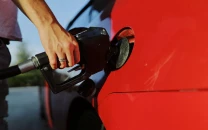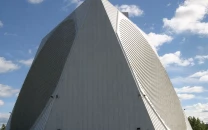Artificial rain
Collaborative effort between Punjab government and UAE resulted in city’s first artificial rain experiment

Lahore’s recent foray into artificial precipitation marks a significant stride in the battle against its persistent smog crisis. The collaborative effort between the Punjab government and the UAE resulted in the city’s first artificial rain experiment, offering a glimpse into the potential of meteorological innovation.
The backdrop to this initiative is Lahore’s escalating smog problem, exacerbated by the absence of rainfall and soaring air pollution levels. The repercussions of heightened smog concentrations have extended beyond Lahore, affecting various districts in Punjab and leading to a surge in citizens seeking medical treatment. In response to Lahore’s success, the Indian government is reportedly contemplating a similar approach, underlining the global resonance of this groundbreaking initiative. On the local front, the provincial government has implemented measures such as smart lockdowns and mandatory facemask usage in affected districts. These efforts, unfortunately, have fallen short in addressing the prevailing challenges. The fact that the UAE government generously supported the initiative without utilising funds from Punjab’s exchequer is commendable. Still, it raises broader questions about financing such initiatives on a larger scale.
Advocating for climate monetary reparations becomes imperative in this context. As cities and regions invest substantial resources in pioneering solutions to combat climate-related issues, the financial burden should not rest solely on local or national entities. By advocating for financial support from wealthier nations and international bodies, cities like Lahore can continue to implement innovative initiatives without compromising their economic stability. In the broader context, financial reparations can contribute to funding not only experimental endeavours like artificial precipitation but also sustainable infrastructure, renewable energy projects and various other initiatives aimed at adapting to the changing crisis.
Published in The Express Tribune, December 19th, 2023.
Like Opinion & Editorial on Facebook, follow @ETOpEd on Twitter to receive all updates on all our daily pieces.














COMMENTS
Comments are moderated and generally will be posted if they are on-topic and not abusive.
For more information, please see our Comments FAQ